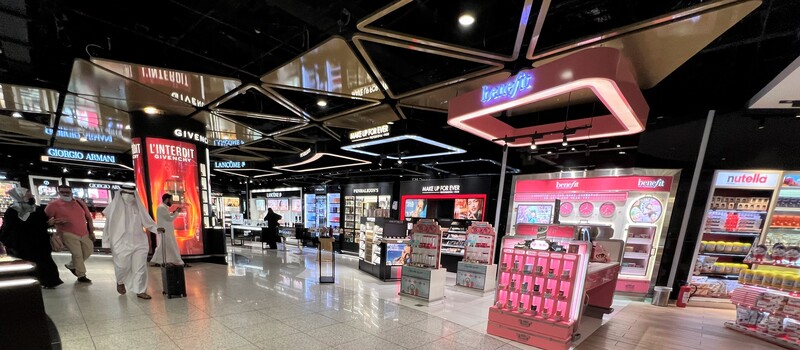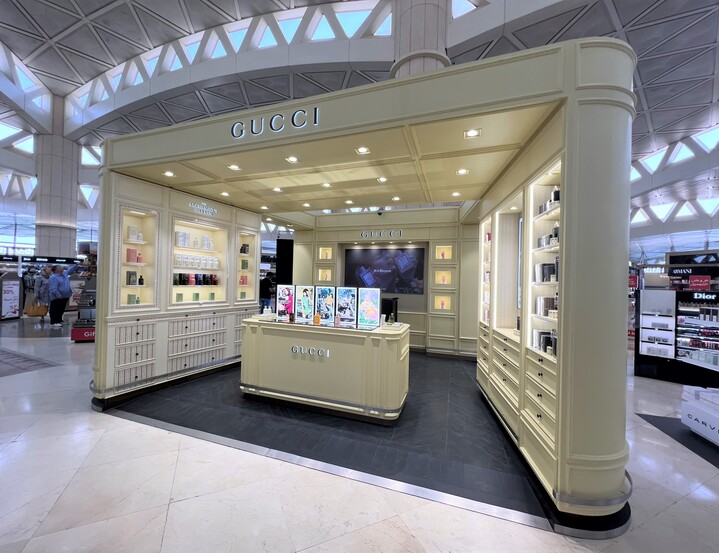Latest posts by Martin Moodie (see all)
- Discovering a fresh philosophy in Shenzhen and talking Trinity in Ho Chi Minh City - April 24, 2024
- How I overcame Severe Tire Damage to become the oldest influencer in town - April 20, 2024
- Free as a (Kiwi) bird and flying high in Haikou - April 13, 2024
 Welcome to The Moodie Davitt Report Interim Riyadh Bureau, aka the Marriott Riyadh Airport Hotel, a few kilometres of desert sand from King Khalid International Airport, gateway to the nation’s capital.
Welcome to The Moodie Davitt Report Interim Riyadh Bureau, aka the Marriott Riyadh Airport Hotel, a few kilometres of desert sand from King Khalid International Airport, gateway to the nation’s capital.
I’m on day 14 of my world tour and after changing hotel almost every day at the start of the trip, it’s a relief to settle down in one spot for a whole week.

Having flown into King Khalid International Airport on Wednesday night, I was back there early the next day to meet Riyadh Airports Company (RAC) Commercial Group Acting VP Abdulaziz Al Asaker and RAC Senior Commercial Advisor Neil McLeod.

Neil, along with Riyadh Airports Company Business Development Senior Officer Retail Services Mohammed Aljawaan and Business Development Manager – Advertising & Duty Free Abdullah Mansour Alseghayyir, were my expert guides on a tour of the existing terminal facilities.
Later we donned our hard hats for a sneak preview of the Terminal 3 and Terminal 4 redevelopments, currently under construction. Both will open in a few months’ time and Abdulaziz left me in no doubt as to the step change passengers will see both operationally and commercially.


























Everything that is happening at King Khalid International Airport is driven by the country’s overarching Vision 2030, a pathway to the future unveiled in 2016 by then Deputy Crown Prince Mohammed bin Salman (colloquially known as MBS and now Crown Prince, Deputy Prime Minister, and Minister of Defense).

The profoundly ambitious programme is designed to transform the Kingdom’s economy and reduce its long-standing dependence on oil. It seeks to nurture a vibrant society built on strong foundations that emphasise moderate Islam, national pride, Saudi heritage and Islamic culture.
And business. Including, right at the front of the queue, aviation and tourism. In an updated 96-page Vision 2030 prospectus, the government describes Saudi Arabia as the “final frontier of tourism”. And what a frontier it is – the birthplace of Islam; a millennia-old crossroads of pilgrims and traders; and home to six UNESCO-recognised World Heritage sites. The Kingdom’s 354 historical locations range from ancient rock art to ruins, original townships, sandstone tombs and extraordinary archaeological finds.
In September 2019 all this was opened up to the world, when the launch of the Kingdom’s tourism visa saw visitors from around the globe flock to explore the country’s attractions and culture. Over 300,000 applications were made in the four months following the visa’s introduction. Then came COVID of course but now all is set to boom again.
“Tourism is poised to become a key driver of the Kingdom’s diversified economy,” the Vision 2030 document declares. “Plans to capitalise on a post-COVID-19 travel boom are well underway, led by the Kingdom’s Ministry of Culture.”
In the six years since Vision 2030 was launched and despite the challenges posed by the pandemic, Saudi Arabia has witnessed unprecedented change and remarkable growth. Abdulaziz says that he and the Riyadh Airports team are excited about their role in delivering that vision. “When Vision 2030 was released all the [business] sectors became united and this is our North Star,” he says.
“We have the capabilities. We have the money. We have oil supporting that,” he says of the country’s ambitions. “There are tangible things coming. And also openness to the world. We have become open. We are hosting a lot of events. Women are driving and are having more freedom in terms of social responsibilities and social affairs as well. These are all promises that MBS made and it’s becoming reality.

“So people started to believe and when you see something on a national scale like this, something inside you makes you want to be part of it – for me even before I joined Riyadh Airports. Then when I joined, I found out that the airport is a major part of the success so I was happy to be part of it.
“[General] Tourism depends on you. Religious tourism depends on you. Events that will happen here a lot depend on you as the access point. Riyadh is the capital. So it means that officials, heads of state, celebrities, sports players, everyone… will come through your airport.”
King Khalid International Airport is the first point that tourists – many of them with little notion of what the country offers or just as likely long-held misconceptions – will encounter, Abdulaziz points out.
“So we have to deliver this notion in a good way. We have to have our facilities and services ready and convenient for the tourist, so they can go out from the airport easily and smoothly with the best experience. Also, we offer the last impression of the country so when they leave the airport they must be farewelled in a very good way and again with the best experience.

“When it comes to the commercial offering, the duty free being built [in T3 and T4] is marvellous. It will be huge, triple the size of the existing duty free and triple the offering as well. When people leave customs and immigration, they will immediately enter the walk-through duty free which will give a rich experience and entice them to shop.”
There’s much more to follow, I promise, which I will bring you both on our main website and in our exciting new launch ‘The Saudi Travel Ecosystem Report’, publishing in July.
After completing a fascinating interview with Abdulaziz, I had the pleasure and privilege of meeting Riyadh Airports CEO Mohammed A. Almaghlouth, a charming and straight-talking man with a crystal clear vision of the role that King Khalid International Airport must and will play in the future. Watch this space.


Later Abdulaziz hosted me and members of the Riyadh Airports Company and daa international teams to a superb lunch at the traditional Najd Village restaurant in Riyadh. Najd (or the Najd Highlands) is the name of the region in the heart of the Kingdom of Saudi Arabia where Riyadh is located.
Its borders extend from the mountains of Hayel to the north to the Empty Quarter to the south, and from the desert of Nafud to the east to the Hijaz Mountains to the west.




The traditional construction and design of Nadj Village simply oozes that heritage, complemented by authentic and delicious traditional Najd meals.
I can’t recall the names of all the dishes but each and every one of them offered amazingly aromatic and succulent flavours.
If you come to Saudi Arabia (as you must) try Jareesh – crushed whole wheat cooked in milk and garnished with onion and lime – or Hashi Kabsah – slow-cooked camel meat that simply melts in the mouth.
The saleek – rice cooked in milk and meat broth – is a tasty complement. And if you have any room left, take your pick from a tempting range of dessert options including Sweet Sabeeb, small whole wheat pancakes dipped in butter and honey.
And on that wonderful culinary note, I bring this Blog to a close. It’s time to prepare for the Future Hospitality Summit which kicks off here tomorrow night with an opening reception hosted by Dur Hospitality, in what is described as an unique futuristic landscape.
Futuristic seems to be a good word to sum up Saudi Arabia. Except the future has already arrived.







